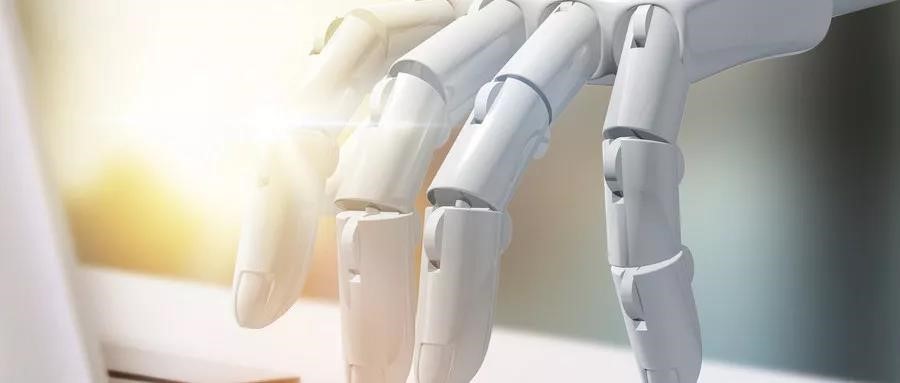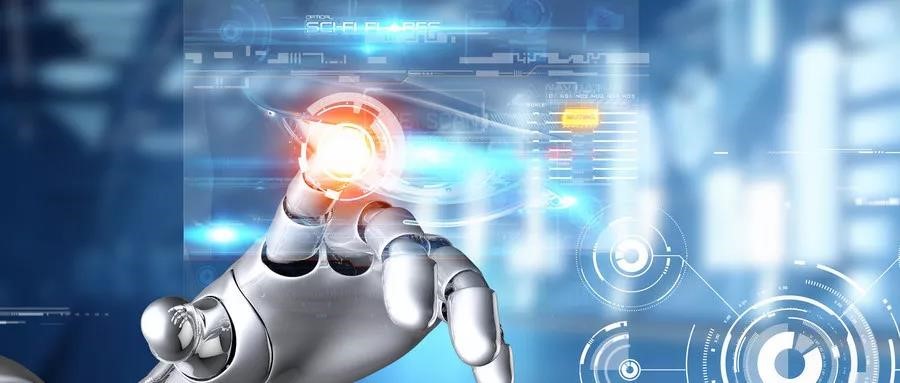Mr. Feng Junguo
Senior Business Expert
Apr 08.2019
Artificial Intelligence (AI) has been known as one of the world's three cutting-edge technologies since the 1970s. It has been comparable to space technology and energy technology in the 20th century, genetic engineering, and nanoscience in the 21st century, which illustrates the position and importance of AI in human cognition of future development.
Over the past three decades, AI has achieved fruitful results and been applied in many fields, and its related technologies and theoretical systems have been gradually improved. From Deep Blue's man-machine war which provided the general public an initial understanding of AI, to AlphaGo's defeat of the world's top Go players which made people exclaim "AI crisis", and to the in-depth application of various industries, AI has been deeply incorporated into human life. It can be said that the whole industry is paying attention to AI. Moreover, digital technology represented by AI has been promoted to the level of the national strategy of China, and building a digital China has become the major task of the Chinese people.

What can AI technology bring to the traditional construction industry?
As for the construction industry, it is a
traditional industry that evolves with the development of human beings.
Buildings are indispensable for the planning of a family, a city, and even a country. In the traditional construction industry, it has always
been the industry players' mission to innovate the industry using advanced technologies, in order to constantly adapt to the needs of human
development and to make people live a better life. Nowadays, a new topic for them is how to apply advanced AI technology in the industry to promote its development.
Based on the above background, in the "Digital China Innovation Contest, DCIC 2019", an important part of the 2nd Digital China Summit, Glodon Company Limited (referred to as "Glodon") released the "Smart Inventory - Reinforcement Quantity AI Identification" competition. This competition is divided into three categories: big data, AI, and industrial internet. It aims to solve the pain points and difficulties in the development of the digital economy, promote the in-depth integration of new-generation information technology and traditional industries, and help the construction of digital China.
The "Smart Inventory - Reinforcement Quantity AI Identification" competition is mainly aimed at the operation of the scenario of mobilization acceptance of reinforcement materials. As the main material which has a great influence on cost estimation, the reinforcing bars need to be counted one???by one, which is a tedious, labor-consuming and time-consuming process. The release of this competition is to collect technical solutions from professionals and technology enthusiasts in the global AI technology field, hoping to make use of AI technology to greatly improve the efficiency and accuracy of the mobilization acceptance and inventory of key materials.
By the end of February, 1,517 teams and 1,666 contestants have participated in the competition. At present, the submitted solutions are scored according to recall rate (number of correctly detected targets/number of correctly detected targets + number of missed targets) and accuracy rate (number of correctly detected targets/number of correctly detected targets + number of incorrectly detected targets), and the highest calculated score has reached 0.99323400. It is believed that after the competition, this technology will be used in the on-site inventory of reinforcement materials, which will greatly improve the efficiency and quality of material managers' work.?
The setting of the competition is a humble attempt, while behind it is the ambition of Glodon to become a "digital building platform service provider". Glodon put forward the concept of "digital building" for the first time in the construction industry, which has been recognized by the industry. Digital building refers to an industry strategy of leading industrial transformation and upgrading using information technologies such as BIM, cloud computing, big data, IoT, AI, and mobile Internet. In combination with the new lean construction theory and method, the digital building integrates personnel, process, data, technology, and business system, and makes the whole process of all elements and all participants digital, online, and intelligent, thus constructing a new platform ecological system for projects, enterprises and industries.
With the widespread concept of digital building, more and more people begin to pay attention to the development of digital building and explore the concept of digital building. Big data and AI technology has always been the focus of Glodon's attention and investment, and some achievements have been achieved in the industry. The application of AI technology throughout the entire life cycle of the construction industry starts later than other industries and the life cycle of the whole building is a relatively long process. Besides, the application of technology has different requirements according to stages. In the design stage, some domestic companies have tried to use AI technology to realize the intelligent design. In the construction stage, there are many operation scenarios on the construction site, and there are more attempts of using AI technology, such as face recognition of workers, the judgment of whether workers wear safety helmets through visual technology, simulation application based on business scenarios, UAV+ image modeling technology, etc. At present, AI is still not applied in the operation and maintenance stage, although there are some preliminary attempts. We can say that the application of AI in the building field is currently facing all kinds of problems which need to be solved. However, the application value of AI in the building field in the future is tremendous.

(I)??Insufficient digitalization
As a traditional industry, the construction industry lacks data accumulation at all stages of the life cycle. At present, the digitalization rate of the operation process is low, and the application of related digital technologies such as information technology and IoT technology has just entered a rapid growth stage. Massive data will be generated over the life cycle of a building. If these data cannot be recorded and accumulated effectively, in-depth data analysis and machine learning cannot be realized, which poses great challenges to the application of AI technology.
(II)??High complexity and insufficient standardization
The entire life cycle of a building is a highly complex and professional process. In the design stage, many aspects should be considered, such as the relationship between different professions, the realization of building functions, project cost estimating control, green buildings, aesthetics, and various special requirements given by human beings. In the construction process, the site organization, production, and working environment are complex. The guarantee requirements in the operation and maintenance stage are high. At the same time, every building is unique, so the design plan, construction plan, and operation and maintenance implementation plan all have their own particularity. The standardization degree of each link is not enough, and it is dependent on people's real-time decisions very much.
(III)??High operational requirements
From design and construction to operation and maintenance, every link has very high requirements. In the process of application of various technologies, safety is the first priority, not only the safety of technology itself but also the impact of technology on buildings shall be considered. Every building is related to the safety of human life and property, and the investment cost of experiments is relatively high. Now, many technologies are introduced into the building field after they are mature in other fields, which promotes its development.?
(IV)??Investment and return expectation
The building field is a very professional field. For the application of AI in the building field, it is necessary to fully understand all business scenarios in the building life cycle process. The investment related to AI technology is relatively large. Apart from the layout and investment of related technologies by the top enterprises in the industry, other enterprises are more willing to invest in the research of AI technology in general fields. For example, computer vision technology is studied by many domestic companies, but most of its research scenarios focus on human routine activities. At the construction site, a camera can be used to collect a lot of information, but the existing vision technology is not effective to tell the professional information herein, which means a lot of professional learning is needed. Therefore, the investment cost of AI technology in the building field is relatively high, and more professional enterprises and professionals are required to invest in research and in-depth exploration, continuously exploring the application value.?
Although the application of technology will come across all kinds of difficulties, when we think about the future, we can foresee that AI has become a technology that no industry can afford to miss. The application of AI will subvert the existing application scenarios, and better serve the future human life. Therefore, we might as well boldly imagine the future construction industry, which may play a greater role in different stages such as design, construction, operation, and maintenance:
(I)??Intelligent design process
The building design is no longer the way it is now. As long as the geographical location information of the building is known, the data of the smart city can be combined to generate a personalized city appearance in line with the characteristics of urban planning as well as the climate characteristics of the region. As long as the data of the main living objects in the future buildings are obtained, the buildings with perfect functions can be generated intelligently, and various functional areas can be set reasonably so that the residential buildings are suitable for living, the office buildings are more suitable for working, and the intelligent plants are more suitable for production activities. The buildings designed by AI technology will meet the needs of human life and work, and integrate all kinds of intelligent sensing devices so that every design will be people-centered.
(II)??Intelligent construction process
The scenario of the future construction process will be different. The current environment of the construction sites are very messy because of the large number of workers, complex management processes, and possible risks at any time. A comprehensive and intelligent optimized construction plan will automatically generate an operation guidance plan according to project characteristics, surrounding landform and environment, and will automatically perceive and evaluate resource allocation, and then rationally allocate various resources under the optimal schedule planning. Intelligent robots will replace human beings in various dangerous working environments. Managers will carry out the remote management of the whole construction process.

(III)???Intelligent operation and maintenance process
In the operation and maintenance stage, we might as well imagine that patrol inspection, security, maintenance, and other comprehensive work will be completed by robots to ensure the safe operation of buildings. The operation data of various systems will be collected in real-time, and dynamic allocation instruction will be carried out through the central system after corresponding decisions are made through data analysis so that the buildings will be truly integrated into people's lives. For example, the running of the elevator during the rush hour is no longer a simple program control. After the intelligent identification of personnel information, the elevator can be programmed according to the working floor where the personnel is located. The route planning can be made for every elevator at any time as required by the personnel so that when people leave the office or home, they can reserve an elevator in advance, and when they arrive at the elevator entrance, there will be an elevator to transport them to the targeted floor. Water, electricity, and other resources in buildings will also be accessed intelligently according to human activities. Intelligent operation and maintenance will accompany us at any time when doing anything.
Of course, the above is just our idealized imagination based on the three stages of building from design, construction, and operation&maintenance. The development of AI in the construction industry needs more professionals to explore and more excellent enterprises to invest in. It might be a long and hard road to apply AI in-depth in the digital building field, but we will make it! We believe that the development of AI will deeply affect the future of the construction industry and the application of AI will make buildings serve us better, making the building truly a part of our perception of the world. Facing the future, we are eager for intelligent buildings, and perhaps the buildings themselves will be an integral part of AI.?
